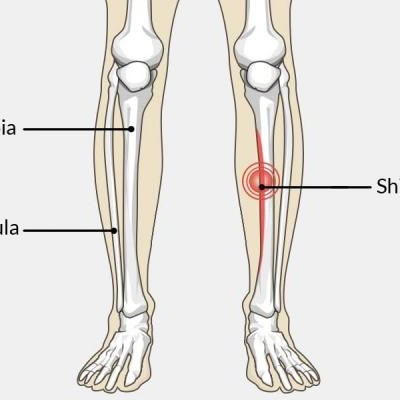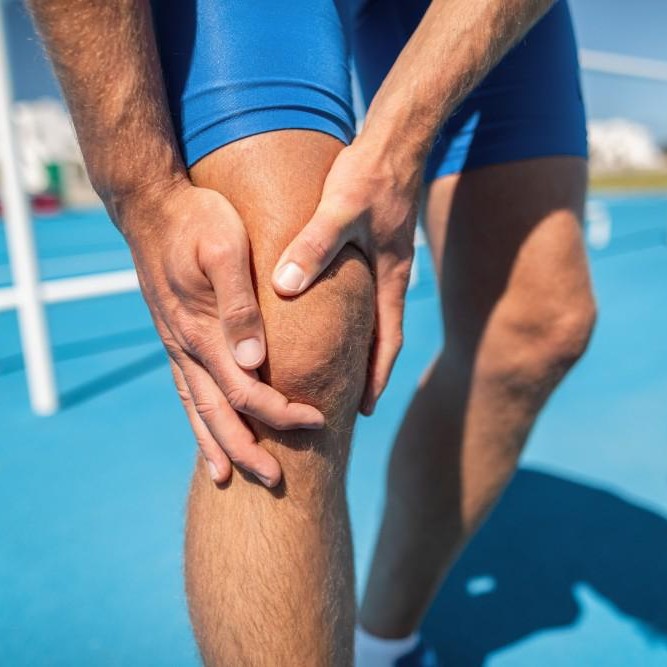GLA:D® Program for Hip and Knee Osteoarthritis

What Is GLA:D®?
GLA:D ® is an education and exercise program developed by researchers in Denmark for people with knee or hip osteoarthritis symptoms. Research from the GLA:D® program in Australia shows an average pain reduction of 36%, reduced analgesic consumption, reduction in perceived need for surgery, and clinically meaningful improvement in joint confidence.
The GLA:D® program includes two informative education sessions where you’ll gain a better understanding of osteoarthritis and how to manage it effectively, and how to retain this improved joint stability outside of the program. Following these sessions, you will participate in 12 supervised group exercise classes spread over six weeks. These tailored exercises are designed to strengthen your muscles, improve joint function, and alleviate the discomfort associated with osteoarthritis.
The exercises and strategies you learn in GLA:D® can easily be continued by you at home. They are a tool for you to use whenever you feel you need to – for example, if something happens to reduce your level of activity, or if your pain increases.
There are many reasons why GLA:D® and similar exercise programs can help reduce pain and improve mobility. Exercise is great for improving bone and muscle strength and well as elevating mood, and is a recognised treatment for some chronic health conditions.
The GLA:D® program is based on the best research to date. It also contributes to the research, so if you would like more info, head to GLA:D Australia.
FAQs
What is GLA:D® Australia?
The GLA:D® Australia team was developed based on extensive research conducted by a clinical team in Denmark in 2012. It stands for “Good Life with osteoArthritis: Denmark”.
Sessions are led by local healthcare professionals like us who have undergone training provided by GLA:D® Australia, who is responsible for the running, development, and research of the GLA:D® program here in Australia.
Who is GLA:D® Best Suited To?
The GLA:D® Australia program is designed to be of assistance to individuals across various age groups who are dealing with mild, moderate, or severe osteoarthritis. This comprehensive program is proven to alleviate pain, enhance mobility, and improve overall quality of life.
In many instances, participation in GLA:D® has successfully helped individuals sidestep the need for surgical interventions such as joint replacements.
You may not be able to participate in the program if:
- You have other reasons for your hip and/or knee pain, including; tumour, inflammatory joint disease, previous hip fracture, soft tissue or connective tissue problems.
- You have other symptoms that are more pronounced than the osteoarthritis problems (for example chronic generalised pain or fibromyalgia).
- You are unable to understand and communicate in English
What Does a Typical GLA:D® Program Involve?
A standard GLA:D® Australia program comprises two essential components:
1. Education Sessions: During these sessions, your clinician will impart the latest research findings and insights. This is your chance to engage in discussions, ask questions, and gain a better understanding of osteoarthritis management.
2. Exercise Sessions: GLA:D® exercises consist of a structured set of 10 exercises, including warm-up and cool-down routines. The primary objective of these exercises is to enhance strength and functionality around your hip and knee joints.
Each session is conducted in small group settings, typically consisting of four to six participants.
Before commencing the GLA:D® Australia program you will need an initial appointment where we will explain the program and collect data on your current functional ability.
The GLA:D® Australia program is currently available at our Banyo, Beenleigh, Southport (Spine Centre) and Sorrento clinics. Please call our practice to discuss pricing and program running times.
Pricing
At Core, the GLA:D® program is fully funded (no out of pocket expense) to eligible ^BUPA and *nib members with hip or knee osteoarthritis.
^As a BUPA member, fund, policy, waiting periods and program eligibility rules apply including, being 18 years or older with diagnosed, symptomatic hip or knee osteoarthritis and holding a domestic Bupa Hospital product that includes joint replacement cover. Customers must be referred in writing to the program by a treating physiotherapist and must not have participated in the GLA:D Program or the Osteoarthritis Healthy Weight for Life Program funded by Bupa in the previous 12 months.
* As an nib member, to be eligible for the fully funded GLA:D® Australia Program you must have been diagnosed with osteoarthritis of the knee or hip that is likely to require joint replacement surgery in the next few years and: Be 18 years old or older; Be an nib Australian Resident, GU Health (resident), AAMI, Apia, Suncorp, ING, Qantas, Australian Senior, REAL or Priceline Insurance member; Have served waiting periods for joint replacement surgery on hospital cover; and have had the diagnosis made by an Orthopaedic Surgeon, General Practitioner or Physiotherapist.
For BUPA and nib health fund members – to check your eligibility for the fully funded GLA:D® program please call our Community Care Team on 1300 044 222 or via email: info@the communityclinic.com.au.
The GLA:D® Australia Program is also available to private paying patients. Please call our practice to discuss pricing and program running times. Private Health Insurance rebates may apply, depending on your level of cover.
You do not need a referral from your Doctor, however you may be eligible for a rebate from Medicare for some of the cost of the initial and follow-up appointment (excludes group classes), if deemed appropriate by your Doctor.
Please contact us to arrange for an individual one-on-one appointment with one of our highly trained Physiotherapists.
Multiple locations across Brisbane,Logan and the Gold Coast
RECENT POSTS
Unleash Your Potential: What is Exercise Physiology & How Can It Benefit You?
In the world of health and fitness, the role of exercise physiology cannot be overstated. This…
The Importance of Early Intervention Physiotherapy
The concept of early intervention physiotherapy is pivotal in the healthcare domain, focusing on…
Understanding Shin Splints: Causes, Symptoms, and Effective Treatments
If you’ve ever had them, you’ll know that Shin Splints are a frustrating and painful condition. If…
ACL Injury & Treatment Copy
The Anterior Cruciate Ligament, of ‘ACL’ is one of the major stabilising ligaments within the knee…




